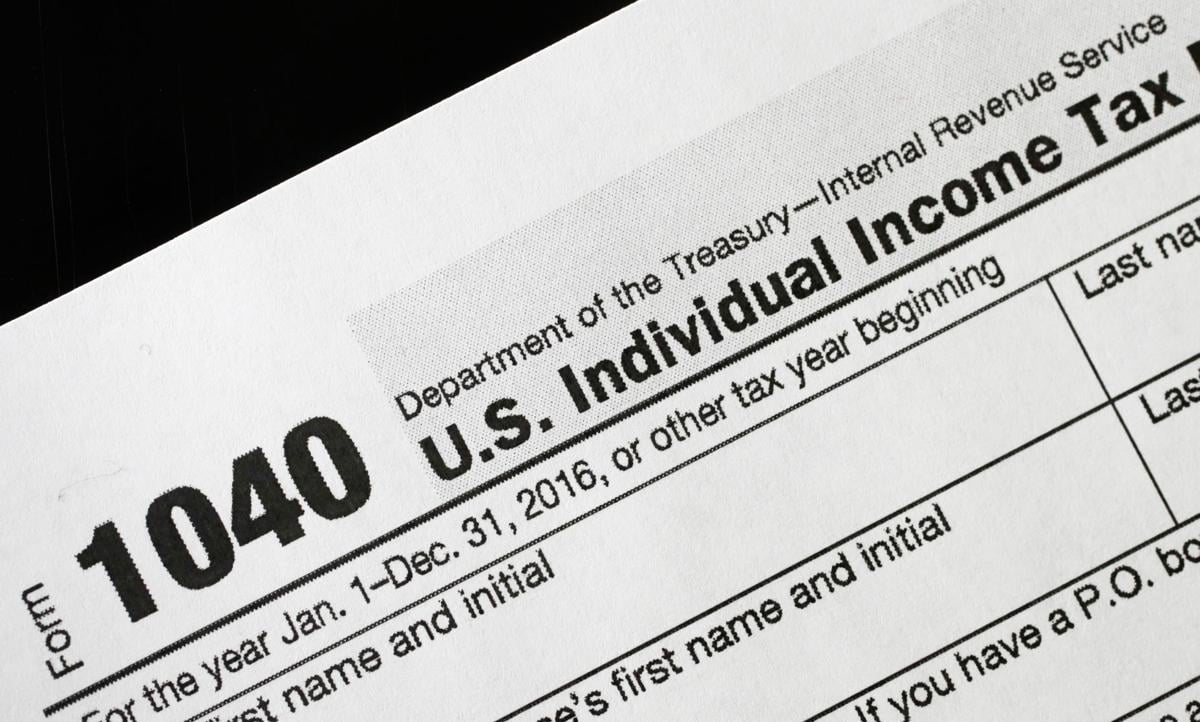PHOENIX — State government stands to gain — and Arizona taxpayers stand to lose — more than $200 million because of the federal tax law changes approved by Congress and signed by President Trump.
And Gov. Doug Ducey has not decided whether he wants to keep the windfall.
A new report by the Department of Revenue shows the net increase in state income taxes paid by Arizona residents will be in the range of about $16 million for the budget year that runs through July 1.
But the real difference comes the following budget year when individuals start filing their 2018 calendar year tax returns. They will find that, collectively, they owe $222 million more in state income taxes than they otherwise would owe had the federal law not been changed; for the following year the figure is nearly $258 million.
For businesses, the additional state taxes owed will be $14 million next year and $28 million the year after that.
The reason all this is an issue is that Arizona is a “piggyback” state. Both individuals and corporations start their computations of what they owe the state not based on raw income figures but on their “federally adjusted gross income.” For individuals, that is Line 37 of the federal Form 1040.
But there are changes in federal law about how you get to that. For example, moving expenses generally will no longer be deductible from gross income.
The bigger difference, according to the state Department of Revenue, is that Arizona law mandates that individual income tax filers who itemize must, in general, use the deductions allowed by federal law. And there are massive changes in what the new federal law allows to be deducted.
There are now limits in federal law on how much can be deducted for state and local taxes.
And gone entirely are deductions for unreimbursed employee expenses, tax preparation fees and the value of items lost due to theft or casualty.
What those changes alone mean, according to the Department of Revenue, which prepared the new report, is Arizona taxpayers will lose deductions that will increase their 2018 state income taxes by about $170 million.
The reason the changes don’t similarly increase federal income taxes goes to the fact that Congress also sharply increased the “standard deduction,” the amount people who do not itemize can deduct from their income. That, in turn, will discourage many people from itemizing, particularly those who do not have large deductions in the areas that remain, including home mortgage interest.
None of that, however, helps Arizonans, as the standard deduction for state taxes remains the same unless legislators alter it.
Not all the changes will automatically mean higher taxes for Arizonans.
There will be immediate savings, largely to businesses that buy expensive new equipment.
Current law allows businesses to deduct a portion of those costs from their current-year income. But the new law says the entire cost can be written off in the first year.
That, in turn, lowers the filer’s taxable income and, by extension, the taxes owed to the federal and state government.
Another provision of the federal law simplifies small business accounting, increasing the standard deduction of what they can take off their income for expenses without itemizing. That has an $8.7 million savings for Arizona taxpayers and a similar deduction in what the state collects in income taxes.
But other changes will, overall, add to what businesses owe the state, things like limiting what corporations can deduct in employee fringe benefit costs and even a change in the law in what the federal government considers “excessive employee compensation.”
Ducey got elected on a promise to never increase taxes. But spokesman Daniel Scarpinato declined to say Thursday whether his boss would build a budget based on the state getting a windfall of new tax revenues, something that would occur automatically without legislative action.
“We want to be responsible and take our time on this,” he said.
Tax attorney Bob Kamman said the question of what legislators should do is not simple.
On one hand, he said, lawmakers could make a series of complex changes in state tax laws to reinstate the deductions the federal law eliminated. That, however, would complicate the ability of Arizonans to do their own taxes.
And there’s something else.
“Most of the changes in federal law to individual taxes expire in eight years,” Kamman noted. “So the Legislature must lower taxes this year to avoid a $250 million tax increase, and then may have to change the law again by 2025 to keep Arizona from bankruptcy.”
Kamman said potentially the best solution would be for Arizona to “decouple” state income taxes from the federal definition of taxable income and come up with their own scheme.
For example, he said, the state could increase the standard deduction to $12,000 per person — the new federal figure — or even raise it to $22,000. At that point the state could eliminate all itemized deductions and tax income above that standard deduction at a flat 2 percent rate.
And he said if that doesn’t bring in enough revenue, the state could tax income above $100,000 at 3 percent, or the present highest rate of 4.24 percent.
“Not everyone would be able to file their state returns on a postcard,” Kamman said. “But many could benefit from simplification.”





